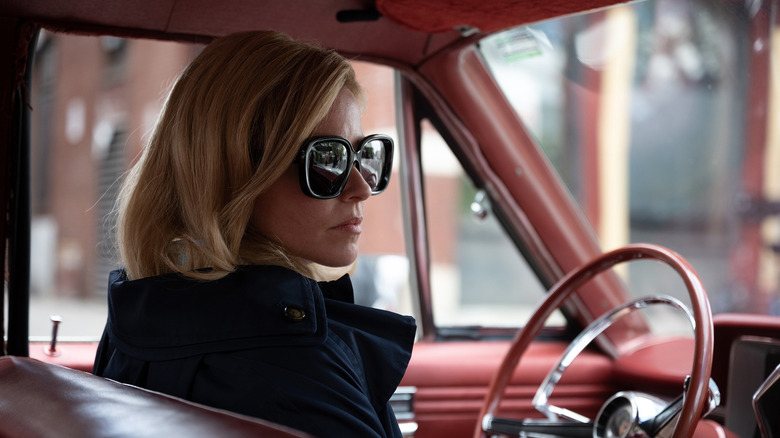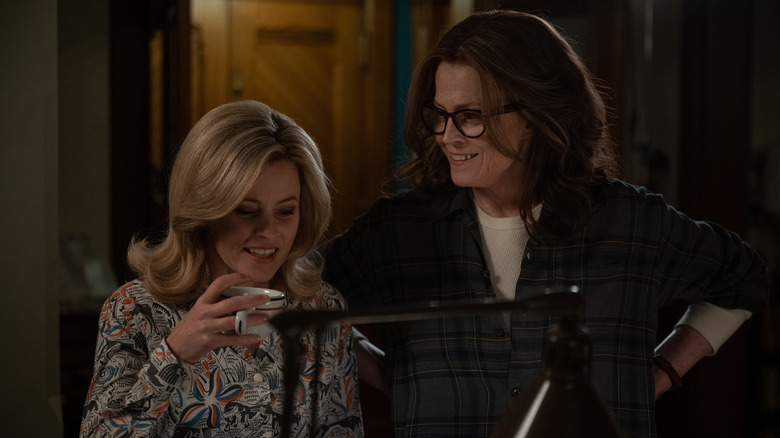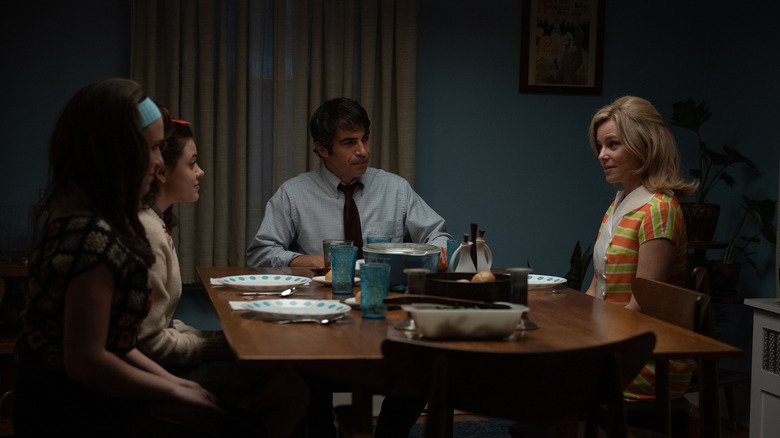Call Jane Review: A Well-Meaning But Strangely Simplified Look At The Jane Collective [Sundance 2022]
Anytime I see someone claiming "This is the movie we need right now!", I get a little antsy. It's such a bold, broad claim and it's almost never accurate. Still, I can appreciate the sentiment, and it's fair to say that Phyllis Nagy's "Call Jane" is an important movie — or perhaps it's more accurate to describe it as a movie about an important subject. Nagy's film is based (loosely, it would seem) on the true story of the Jane Network, an underground group providing women with abortion services in Chicago between 1969 to 1973. At the time, abortion was still illegal nationwide. Roe vs. Wade changed that, but now, here in 2022, abortion is perilously close to being illegal again. Texas has essentially already outlawed it on a state level, and America's right-leaning Supreme Court seems poised to do the same thing on a grander scale. For the country to come so far only to now go backward is appalling.
So, yes, "Call Jane," a film about abortion, is coming along at a needed time. And it is with that in mind that we can, perhaps, forgive some of the film's flaws. "Call Jane" feels streamlined for the mainstream, but maybe that's not such a bad thing right now. Perhaps getting this story out to the widest possible audience is ideal. Perhaps a slickly-made product featuring famous faces is exactly the sort of thing we need. Or perhaps not. Perhaps letting "Call Jane" off the hook is tantamount to not treating its issues seriously enough. It certainly doesn't help that the film's tone is a little all over the place, running the gamut between "Very Serious Drama" and "Kind Of A Comedy". Nagy employs one too many montages here to move things along, and with the wide cast of characters, it can start to feel like we've accidentally stumbled into a heist flick.
It's 1968, and cheery housewife Joy (Elizabeth Banks) is pregnant with her second child. However, after learning about a medical condition, it becomes clear that Joy can't have her baby — doing so could very well put her own life in danger. That doesn't seem to concern the council of doctors Joy and her husband (Chris Messina) turn to for help with terminating the pregnancy. To undergo such a procedure, Joy needs the approval of this group of stern-faced men, all of whom deny her request while acting as if she wasn't in the same room with them. Desperate, Joy first considers throwing herself down the stairs to induce a miscarriage. Then she heads off to a dirty, grimy "doctor's office" in an apartment to undergo an abortion, but gets cold feet and flees. Immediately after this escape, Joy spots a flyer aimed at pregnant women with a phone number and a mysterious statement: "Call Jane."
Call Jane
As it turns out, there is no Jane. Instead, there's a collective of women who are part of an underground organization run by Virginia (Sigourney Weaver). After some cloak and dagger stuff involving blindfolds and a secret car ride (remember: These women were breaking the law at the time, and therefore understandably paranoid about getting caught), Joy is able to undergo an abortion — and then almost immediately gets roped into helping out the group.
Banks is doing great work here, perhaps the best of her career. She plays Joy as a traditional-ish housewife, but that doesn't mean she's some brainwashed Stepford resident. She has hopes and dreams of her own, and is certainly far more progressive than her neighbor, a nosy, Nixon-voting widow played by Kate Mara. But because Hayley Schore and Roshan Sethi's script is often so light, Banks also gets to flex her comedic chops. Weaver is also stellar as the no-nonsense Virginia, but you also begin to wonder why the movie needs Joy at all. Sure, the explanation is that Joy is the audience surrogate; the outsider who brings us along into the film's world. But wouldn't it be better to focus on Weaver's Virginia, and let us watch her build the Jane Network up? By making Virginia a background player, "Call Jane" often feels like it's taking an easy path. That to focus on someone like Virginia would be too messy and ambitious, and it's better to stay simple.
The same is true with how the rest of the group is portrayed. We learn almost nothing about the other women Joy meets; some of them don't even have names, they simply drift about in the background of scenes. There's only one Black member of the group, Gwen, and while Wunmi Mosaku is quite good in the role, the role itself is severely underwritten. Gwen does get one big scene where she and Virginia argue about how the collective deals with other Black women in need of services, but this moment is presented almost as an afterthought, or as if it's been included to merely tick a box before quickly getting back to Joy and her story.
Quiet Simplicity
Nagy and company do find ways to liven the film up and give it an identity of its own. The group's doctor, a comically young-looking guy played by Cory Michael Smith, is refreshingly complex (he overcharges for her services and he's kind of a jerk, but he's also not presented as a full-blown villain). And Messina's husband figure is supporting in ways that feel appropriate for the era, rather than simply making him an ultra-modern, super-progressive business guy who seems incredibly out of place in the '60s. I also appreciated the way the film keeps the cultural shifts of the era somewhat in the background while still acknowledging them — an opening moment finds Joy watching a Yippie protest, but we never see the protestors; we merely hear them and see their shadows flickering on the side of a building. A late-breaking scene involving a cop who seems like a serious threat until he doesn't is also quite powerful in its quiet simplicity. In addition to all that, the movie also doesn't shy away from showing abortion procedures.
Still, I wanted more. Specifically, I wanted more insight into the Jane Network as a whole — how it started, how it operated. Virginia mentions that she had to pay off the mafia more than once, and that's the sort of detail that feels like it should be explored more instead of being casually tossed off as an anecdote. But the film is so laser-focused on Joy there's often no room for anything, or anyone else. But I hope "Call Jane" finds a wide audience, and if the film's somewhat sanitized portrayal of events helps change a few minds in regards to the issues at hand, that will be a net good.
But wouldn't it be better to go deeper? To give viewers an even more in-depth portrait of what's going on here? Surely that would help with the cause, too. I can appreciate that the film wants to present its subject matter in simpler terms, and I can appreciate that the film isn't constantly screaming about HOW IMPORTANT THIS ALL IS in big capital letters. It's hard to fault a film with such noble intentions, but that doesn't mean "Call Jane" couldn't have done a better job.
/Film Rating: 7 out of 10


